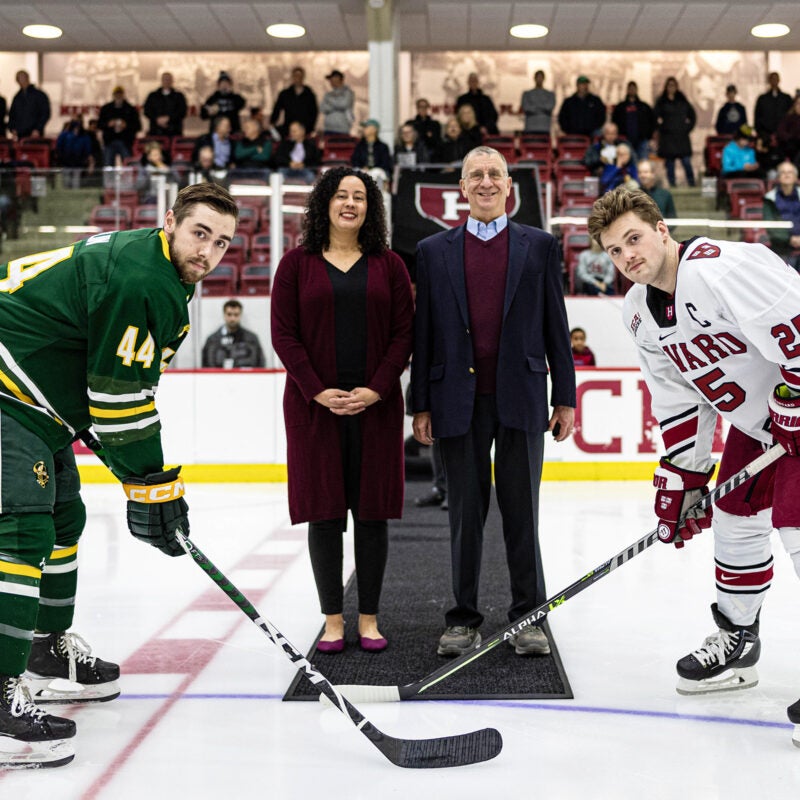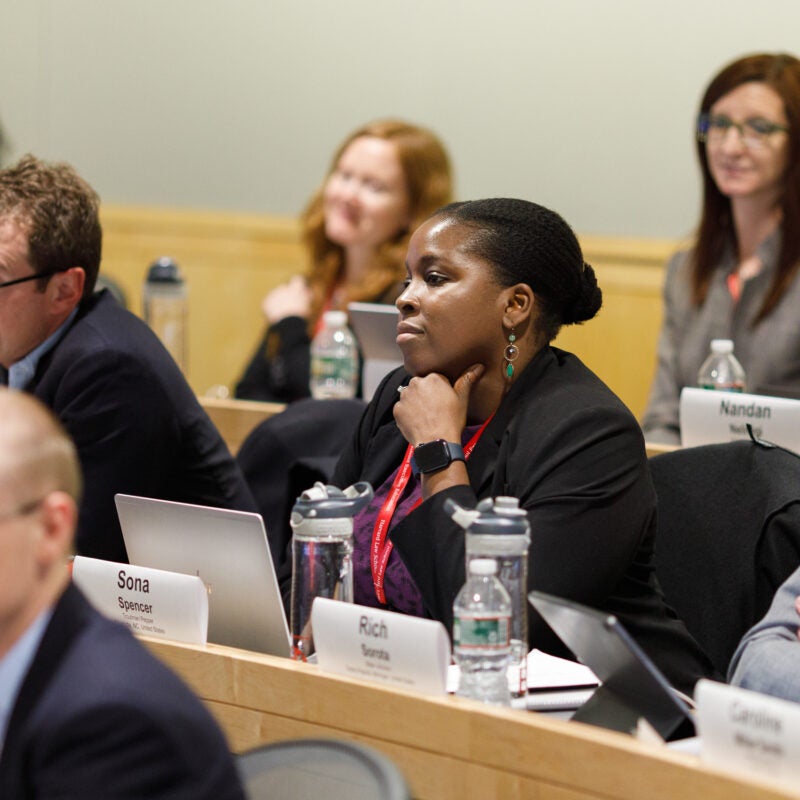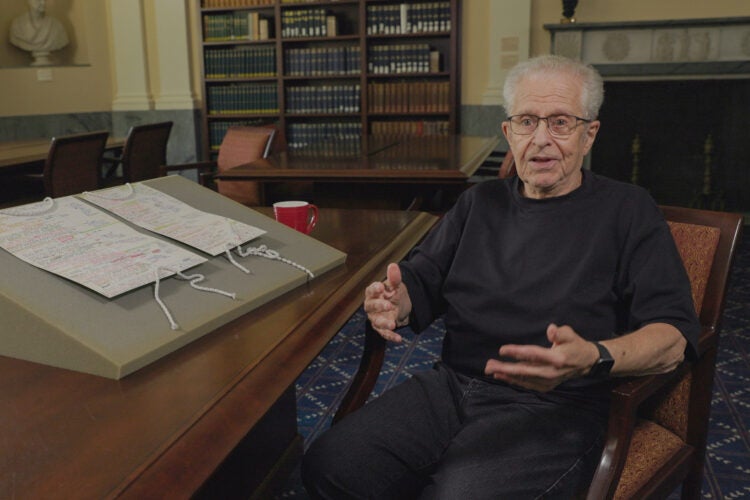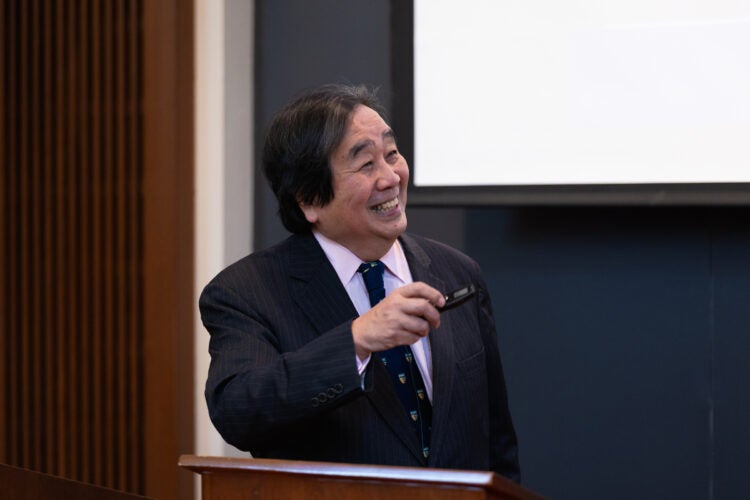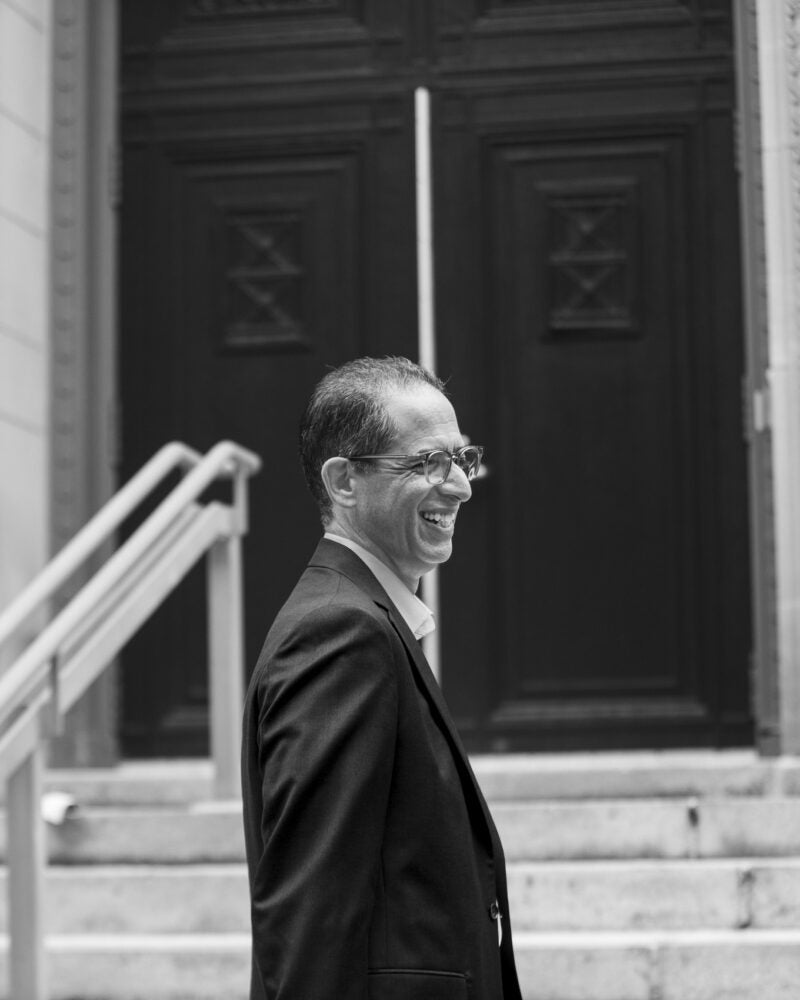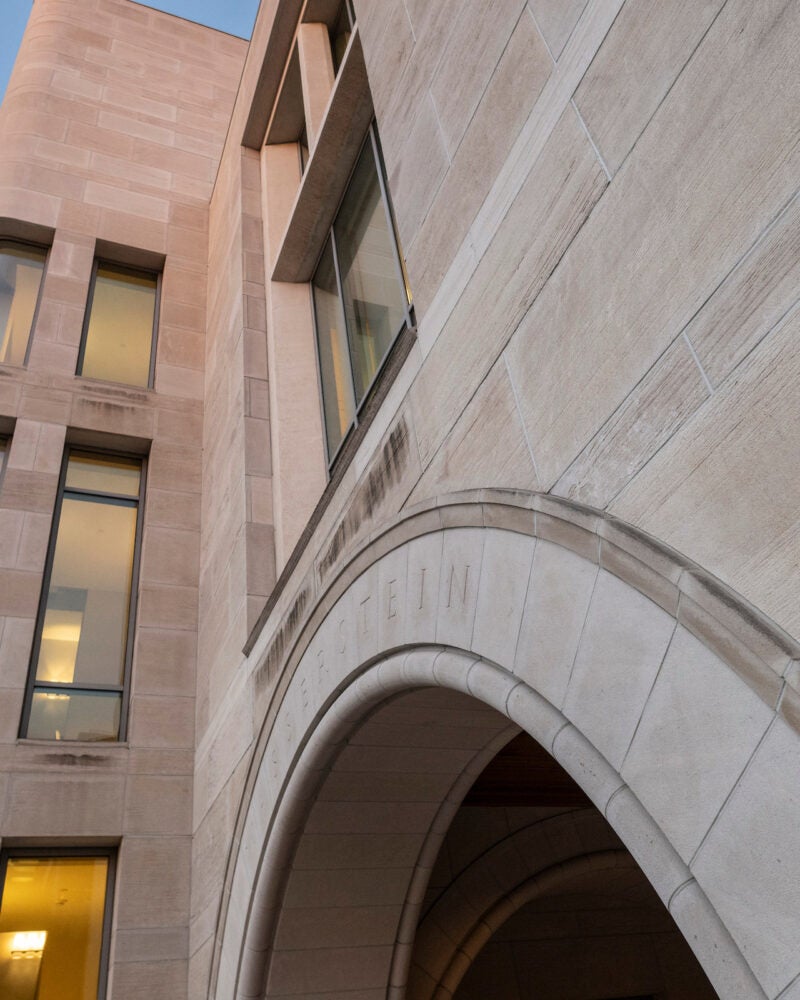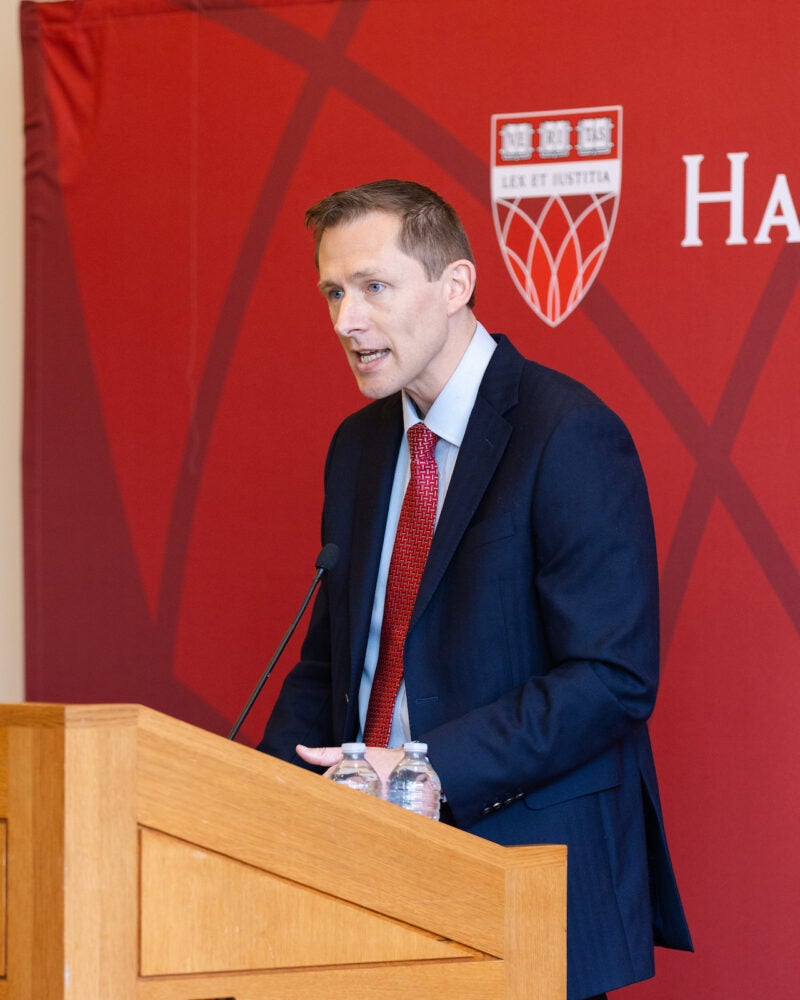Home
‘HLS is Truly a Collaboration’
A conversation with John C.P. Goldberg, Harvard Law School’s new dean
Featured Areas of Interest
- Administrative and Regulatory Law
- American Indian Law
- Animal Law
- Antitrust
- Arts, Entertainment, and Sports Law
- Bankruptcy and Commercial Law
- Children and Family Law
- Civil Litigation
- Civil Rights
- Conflict of Laws
- Constitutional Law
- Criminal Law and Procedure
- Contracts
- Comparative Law
- Corporate and Transactional Law
- Courts, Jurisdiction, and Procedure
- Disability Law
- Education Law
- Election Law and Democracy
- Employment and Labor Law
- Environmental Law and Policy
- Finance, Accounting, and Strategy
- Financial and Monetary Institutions
- Gender and the Law
- Health, Food, and Drug Law
- Human Rights
- Immigration Law
- Intellectual Property
- International Law
- Jurisprudence and Legal Theory
- Law and Economics
- Law and Philosophy
- Law and Political Economy
- Law and Religion
- Leadership
- Legal History
- Legal Profession and Ethics
- LGBTQ+
- National Security Law
- Negotiation and Alternative Dispute Resolution
- Poverty Law and Economic Justice
- Private Law
- Property
- Torts
- Race and the Law
- State and Local Government
- Tax Law and Policy
- Technology Law and Policy
- Trusts, Estates, and Fiduciary Law
- More
500+ Courses & Seminars
47 Clinics & Student Practice Orgs
88 Student Organizations
Limitless Possibilities


